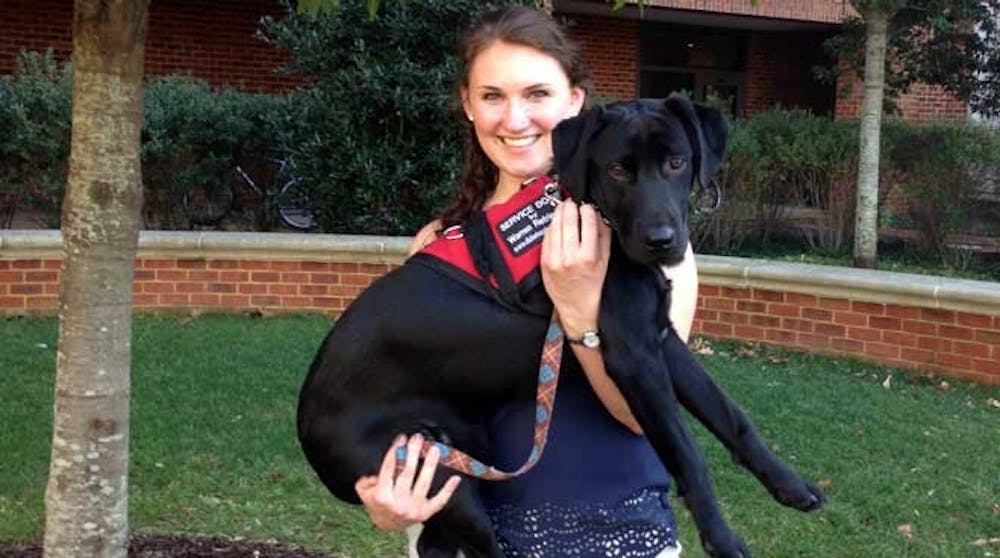Starting next fall, one or two puppies will live on campus in the University Forest Apartments with students who will train them for Guiding Eyes for the Blind, chemistry professor Carol Parish said.
Parish held two information sessions this week, and about 50 students expressed interest in becoming puppy raisers or trainers, she said. Puppy raisers take dogs from 8 weeks old to between 16 and 18 months old, Parish said.
"The University of Richmond can make a real impact for Guiding Eyes for the Blind," she said.
It is the raisers' job to make sure the dogs are well socialized, to teach them basic obedience and to place them in new situations, so that nothing will surprise them when they become a guide dog, she said. It takes time and patience to train a future guide dog, she said. The puppies must be on a regular schedule and walked one to two miles per day.
"The pup needs love and attention 24/7/52," Parish said. "These are not pets. This is a service- dog-raising program and a good thing to give back to the community."
After attending orientation sessions and filling out applications, students who wish to become puppy raisers or trainers must attend local puppy training classes and attend on-campus programming, Parish said. There will be three weeks of official training on campus this semester held in Gottwald Science Center for potential raisers and sitters and also classes in the summer, Parish said.
After about 14-16 months, the puppy "goes to college" and is further trained and placed with a person in need for no charge, she said.
Sophomore Chris Silvey has been raising dogs for the past two years and has become interested in the philanthropic and entertaining components of raising a dog, he said. Silvey observed training programs at other campuses, such as the University of Delaware and Ithaca College, and this summer had thought about bringing a similar program to Richmond, he said.
The program has created a network of puppy sitters to help students balance school and full-time dog training, he said. Silvey hopes to be one of the initial dog raisers, he said.
The selection process would take into account a student's GPA and extracurricular activities, Parish said, because GEB doesn't want the extra stress of raising a dog to overwhelm the puppy and its raiser. If a student does not want to make the strong commitment to become a raiser, he or she can sign up to be a puppy sitter and look after puppies for afternoons, evenings and long weekends, she said.
Parish and her husband, Martel Zeldin, also a professor at Richmond, are currently raising their second puppy, Nordic, for GEB. Each day, Zeldin brings Nordic to school with him, and Nordic spends the day in his office until it is time to take him outside, he said. At home, Zeldin plays with Nordic, takes him outside and trains him, he said.
The long-term goal of the program is to increase its efficiency in providing dogs to people in need, Parish said. "Students on campus are so bright and committed - what better way to involve students," she said.
Enjoy what you're reading?
Signup for our newsletter
Contact reporter Jessica Racioppi at jessica.racioppi@richmond.edu
Support independent student media
You can make a tax-deductible donation by clicking the button below, which takes you to our secure PayPal account. The page is set up to receive contributions in whatever amount you designate. We look forward to using the money we raise to further our mission of providing honest and accurate information to students, faculty, staff, alumni and others in the general public.
Donate Now



